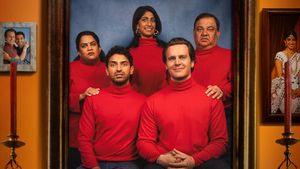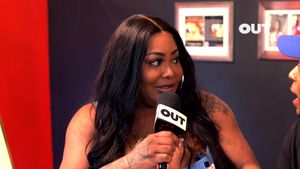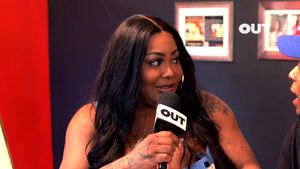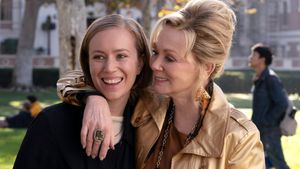A Bread Factory is a most unusual concoction - a film in two parts that blends drama, comedy, and music in the tale of a lesbian couple fighting to maintain their community performance space in the face of celebrity and corporate forces that have invaded their small town.
Written and directed by gay filmmaker Patrick Wang, it has a cast of more than 100, including Janeane Garofalo, James Marsters, Brian Murray, Glynnis O'Connor, opera star Martina Arroyo, and, at its center, Tyne Daly and Elisabeth Henry as Dorothea and Greta, the couple who have run an arts center for 40 years in what was once a bread factory.
It's an ode, it's a paean ... Patrick's making love on film, particularly to those women characters who sustained his life and made him want to be an artist," Daly tells The Advocate.
The veteran actress, still beloved for Cagney & Lacey and reaching new audiences with a recurring role on the Murphy Brown reboot, came to the project via her friend Murray, an esteemed theater actor whose last performance was in A Bread Factory (he died in August). Because Murray was in Wang's first feature, In the Family, about a suddenly widowed gay man fighting to maintain a relationship with his son, Daly saw the movie, and she admired it.
Then A Bread Factory came up. "Brian told me that Patrick was doing this movie, which was an homage to those kind of theater folks who just keep on plugging away even though they don't get much credit for it or much money out of it," Daly recalls. She learned it had more than 100 speaking parts and that Wang intended to film it 28 days. "I thought, well, he's completely crazy, and I think that's gonna be fun," she says.
It's Daly's first time playing a lesbian character - sort of. She appeared with Linda Lavin in the 1981 TV movie A Matter of Life and Death, about the creation of the hospice movement; in real life, their characters had been lovers, "but we couldn't do that on American television" at the time, Daly notes. And, of course, many viewers saw a lesbian subtext in Cagney & Lacey, with some meaning it as an insult, others as a compliment, but the characters were officially straight.
"I don't think you make any specific adjustment to play a lesbian or a gay person ... I don't know what the big deal is," Daly says. To the idea that gay characters should always, or usually, be played by gay actors, she says, "Pooh."
"If I'm not allowed to use my imagination, then I'm not in my craft," she says.
 Daly with Elisabeth Henry
Daly with Elisabeth Henry
Daly is definitely an ally of LGBTQ people and a supporter of progressive causes. At the curtain call for her Broadway play It Shoulda Been You on June 26, 2015, she hailed the arrival of nationwide marriage equality, thanks to the Supreme Court ruling issued that day. She noted that when she married African-American actor Georg Stanford Brown on that date in 1966, their marriage was illegal in 17 states, a situation changed only by the Supreme Court's ruling in Loving v. Virginia the following year. "I think today is amazing," she told the audience, then quoted a line she'd seen in a newspaper that day: "Hate is strong, but love is stronger."
She has also spoken at women's marches and demanded that the Cagney & Lacey cast donate the portion of their residuals derived from airings in South Africa, then under apartheid, to anti-apartheid groups like the African National Congress.
But she doesn't particularly consider herself an advocate, she says. "When I see a clear inequality or crappy judgments of other people, I don't like it," she says. She speaks out, but "I don't set myself up as any kind of glorious spokesman," she adds.
Her values, she says, are derived from her parents, actors James Daly and Hope Newell. "My old dad used to say, try and act like a member, by which he meant a member of the human race," she says.
James Daly was also a closeted gay man. "He was in hiding his whole life, which was sad, and we were the closeted family," she recalls. Her actor brother, Tim, discussed their father's homosexuality in a Father's Day interview in 2016, years after their parents' death.
Tim, known for his work on Wings and Madam Secretary, is the major political activist in the family, she says. He's president of the Creative Coalition, which advocates for arts funding, freedom of expression, and other matters important to arts and entertainment professionals.
Tyne, however, has done her share of marching, and she also tries to address political issues through her work. Being on Murphy Brown, in which she plays Phyllis, who has taken over the bar and grill Phil's from her late brother, is one way to do that. The show has taken on many political issues in the age of Donald Trump.
"I was at a loss as to what to do now, when everything seems so bleak and so slanted and so hateful and name-calling, and then there was this offer to work with these Murphy Brown folks, and they're smart," she says. "I want to be in rooms with people who are smarter than I am, and that [creator] Diane English and that Candice Bergen, they're real smart cookies."
Asked about the current political activity around women's rights, including the #MeToo movement, Daly says, "I've lived a long time and I've seen a lot of cycles of change." Right now, she says, "There's a reenergizing, and it comes from more understanding of violations, betrayals and injustices. ... The energy comes up in cycles and goes around again, and in teeny, teeny, tiny itsy-bitsy incremental bits, it does get better."
She's somewhat resistant to the idea that A Bread Factory is a message movie, but she says it's "about these women who have this endless energy to tell stories that make us better people -- it should be more common and not so uncommon that people make these efforts." She adds that it's important for audiences to be entertained by the film.
"I hope that people have some kind of experience that took them off themselves for a couple minutes and to someplace else -- adjusted their reality a little bit," Daly says.
The actress, who's spent a lot of time trying to convince people "that art is essential rather than dessert," has more than A Bread Factory on her plate right now. In addition to this film and her role in Murphy Brown, she has another film opening this fall, the Coen Brothers' The Ballad of Buster Scruggs. And she and brother Tim are appearing in Theresa Rebeck's new play, Downstairs, at off-Broadway's Cherry Lane Theatre in November and December, playing, you guessed it, siblings.
"I'm doing a pretty sexy juggling act until Christmas," Daly says. When the holiday comes, she says, she hopes to relax and watch her grandchildren do the performing.
A Bread Factory, Part One: For the Sake of Gold and Part Two: Walk With Me a While, will open today at Village East Cinemas in New York City and Monica Film Center in Los Angeles, with other cities to follow. Find more information here and watch a trailer below.
A BREAD FACTORY trailer from Patrick Wang on Vimeo.
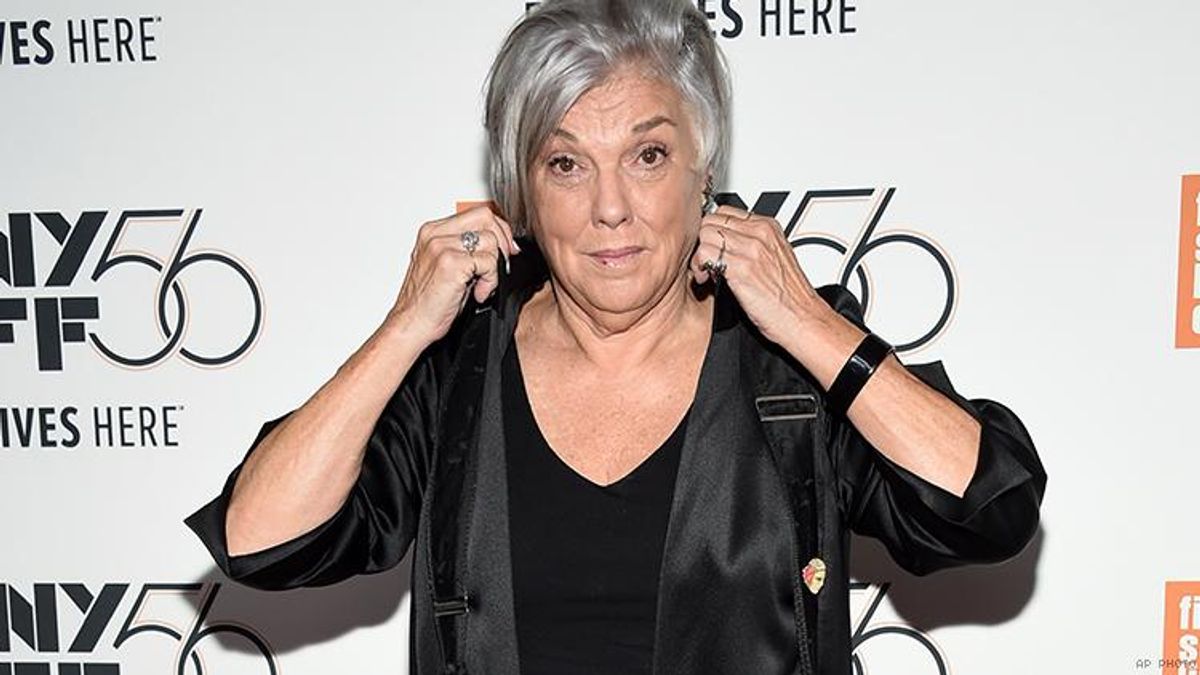

 Daly with Elisabeth Henry
Daly with Elisabeth Henry




























